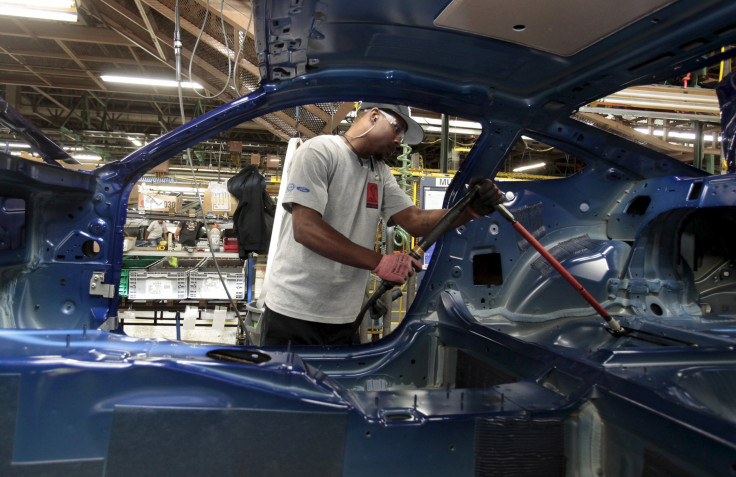Autoworkers Reject Contract With Fiat-Chrysler As UAW Union Threatens Strike At Ford Plant

Labor tension is mounting at Detroit's Big Three, raising the possibility of the first strike by American assembly line autoworkers in nearly a decade. By a wide margin, workers have voted down a tentative contract agreement brokered by their union, the United Auto Workers, and Fiat Chrysler Automobiles. Meanwhile, the UAW is threatening to strike at a major Ford plant in Kansas City.
The rank-and-file rejection from Fiat Chrysler's 39,000 unionized workers throws a wrench into plans made between the UAW and major American automakers -- including Ford and General Motors -- to reach new labor agreements. The most recent contracts, which cover a combined 140,000 workers, all expired earlier this month. Negotiators for the union had anticipated using the Fiat Chrysler agreement as a pattern to reach similar deals at Ford and GM. The "no" vote sends the UAW leadership back to the drawing board.
Although UAW President Dennis Williams has said he wants to avoid it, a strike remains a possibility. As part of the Great Recession's federal bailout of the auto industry, the UAW agreed to no-strike clauses in its contracts at GM and Chrysler. Since the current contracts have expired, the union now regains that option. Workers at all three automakers have already voted to authorize strikes -- a procedural move meant to ramp up pressure on the companies.
The UAW has threatened to strike at one plant -- a Ford factory in Kansas City that produces the popular F-150 pickup truck, the best-selling Ford vehicle in North America. Workers could walk off their jobs as early as Sunday.
Other options, observers note, could be to negotiate another agreement with Fiat Chrysler that can muster the necessary votes for approval or choose a different automaker for so-called pattern bargaining.
Workers voiced frustrations with a few aspects of the tentative agreement hammered out by negotiators, most notably, uncertainty over the end of a controversial two-tiered wage system the UAW accepted in 2007 -- a delicate time for the American auto industry. Autoworkers also criticized a newly proposed health care plan and called for more investments in the labor force.
New auto sales in the United States have increased at a record pace for much of the last five years.
© Copyright IBTimes 2025. All rights reserved.






















